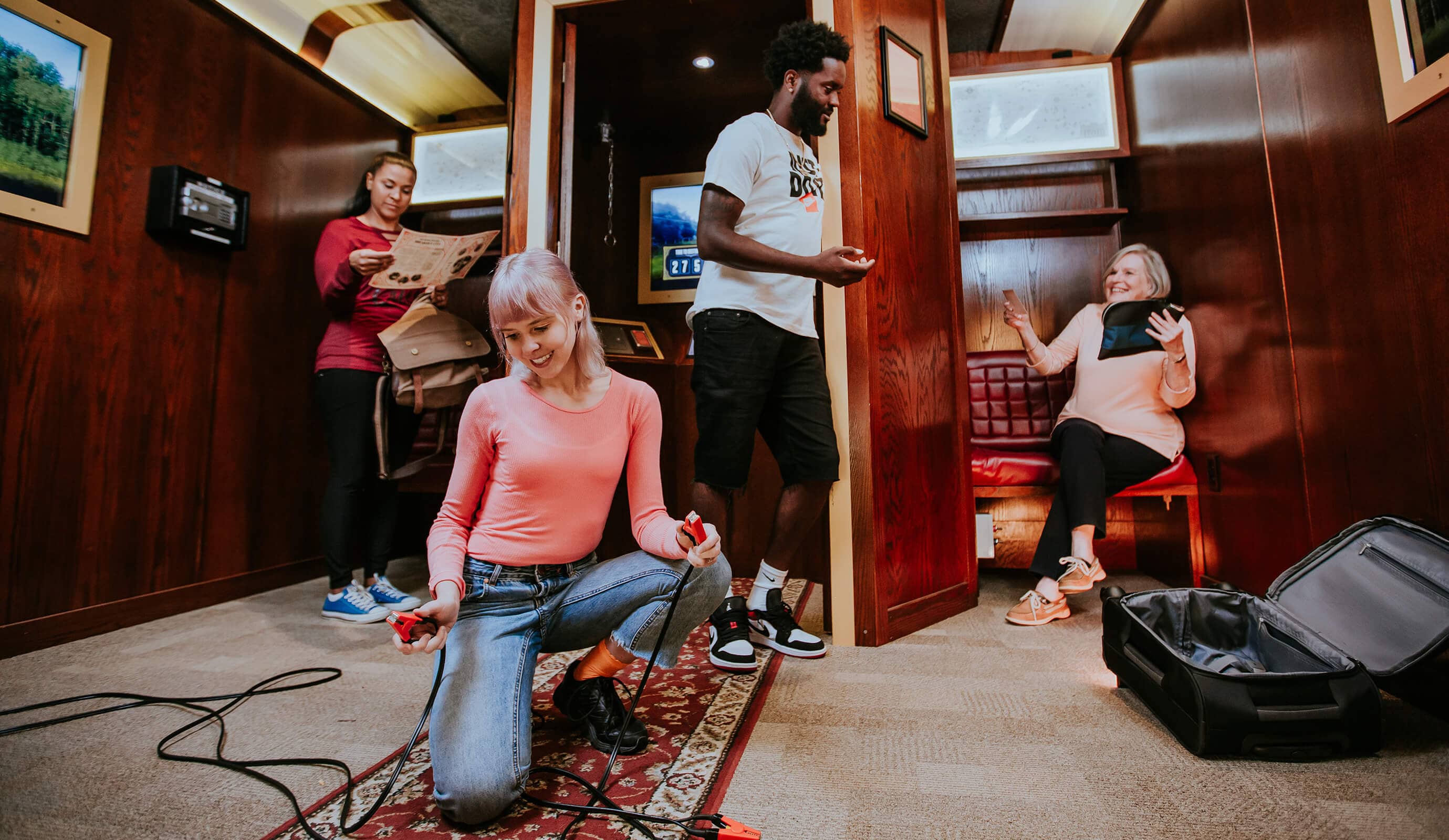Enjoyable and Challenging Escape Room-- Plan Your Next Experience
Enjoyable and Challenging Escape Room-- Plan Your Next Experience
Blog Article
Group Approaches: Exactly How to Team up Efficiently in a Retreat Space
Teams should proactively pay attention to each participant's insights, designate functions that line up with specific strengths, and keep routine check-ins to make certain emphasis and prevent redundancy. By fostering an atmosphere that values cohesion and flexibility, groups can considerably increase their performance and success prices.
Establish Clear Communication

To promote clear interaction, it is important to mark a central point of get in touch with for details circulation. Short, concentrated updates from each team participant can keep the team informed without frustrating them with info.

Appoint Duties Purposefully
While clear communication sets the foundation for effective teamwork, designating functions tactically guarantees that each team member's strengths are used properly. In a retreat area scenario, the time-sensitive and intricate nature of challenges requires an efficient method to job delegation. By recognizing and leveraging individual competencies, groups can optimize their problem-solving abilities and improve overall performance.
A person with an eager eye for detail might succeed in discovering concealed items, while a sensible thinker can be better fit to resolving challenges. This role typically requires solid organizational and interpersonal abilities.
Second, make sure that functions are versatile and versatile. As new difficulties emerge, the group has to have the ability to pivot, reallocating jobs as called for. This adaptability helps keep momentum and stops bottlenecks that can happen due to inflexible function tasks.
Eventually, a tactical technique to role assignment not only makes the most of the staminas of each employee however also promotes a cohesive atmosphere, driving the team in the direction of an effective escape.
Make Use Of Diverse Abilities
Identifying and harnessing the diverse abilities within your team can substantially raise your efficiency in a getaway room. Each employee brings special toughness to the table, and successfully leveraging these capabilities can quicken analytical and improve total performance. For instance, an employee with solid logical abilities might excel at analyzing intricate codes or patterns, while an additional with keen observational capacities may swiftly identify surprise clues that others might overlook.
Effective communication additional reading is essential to using these diverse skills. Urge team participants to voice their insights and concepts immediately, guaranteeing that all potential services are thought about. This inclusive strategy fosters a dynamic setting where creativity and critical thinking can grow. In addition, appointing tasks that line up with each participant's strengths can protect against traffic jams and guarantee that progression is continual.
Moreover, diversity in abilities typically translates to variety in assuming styles, which is vital in a getaway space setup. While some difficulties might require logical thinking and precision, others could take advantage of creative and lateral reasoning. By identifying and leveraging this variety, groups can address a wider series of challenges better, consequently enhancing their chances of a successful retreat.
Manage Time Effectively

Identify visible problems and split jobs based on group members' toughness, guaranteeing that nobody is idle. This method can help keep the team concentrated and prevent time from sliding away unnoticed.
In addition, prevent one-track mind. If a problem is taking also long, revolve staff member or go on to an additional challenge, returning later with fresh perspectives. Interaction is vital-- maintain every person upgraded on addressed puzzles and staying jobs to prevent repetitive efforts.
Finally, make use of any tips or hints moderately but purposefully - go now best escape room. Understanding when to ask for aid can save important time. By adhering to these time administration principles, teams can substantially boost their opportunities of a successful and satisfying retreat area experience
Debrief and Mirror
Representation is an essential aspect of team advancement and enhancement in the context of escape spaces. Once the challenge is completed, whether successfully or otherwise, it is essential for the team to involve in a structured debriefing session. This process enables employee to analyze their efficiency, determine toughness, and identify locations for improvement.
Begin the debrief by index discussing what worked out. Highlight particular instances of reliable communication, analytic, and cooperation. Identifying these favorable behaviors enhances them and encourages their rep in future challenges.
Talk about moments of complication, miscommunication, or inadequate techniques. Urge an open and constructive discussion where team participants can share their point of views without worry of criticism.
Conclusion
In final thought, effective collaboration in a retreat area is based upon clear interaction, tactical duty assignments, the efficient use of diverse abilities, and efficient time monitoring. By creating a cohesive and flexible group setting, the likelihood of successfully resolving challenges and achieving the purpose of escaping the room is considerably boosted.
Report this page